
Our vision:
A safe and healthy Kitsap County for all.
Water Contact Advisories
The Kitsap Public Health District's Water Pollution Identification & Correction (PIC) program protects public health and prevents fecal pollution in Kitsap County surface waters.
Health District staff sample dozens of streams and swimming beaches across the county for fecal bacteria, an indicator of fecal pollution caused by human or animal waste. Fecal pollution can carry viruses and harmful bacteria that make people sick.
We use water sampling results to notify the public of potential health risks, and to find and fix fecal pollution problems. This helps keep our streams, swimming beaches and shellfish beds safe and healthy for the public to enjoy.
Read the 2025 Water Quality Monitoring Report
Current Advisories
Active swimming beach, cyanobacteria (blue-green algae), and sewage spill advisories are listed below. Visit our swimming beach monitoring page to learn more and see a list of the beaches we monitor. For shellfish advisories, see our shellfish safety page.

Swimmer's Itch
Location:
All Lakes
Start Date:
Status:
Active
Swimmer's Itch (cercarial dermatitis) is caused by an allergic reaction to a parasite.
Swimmers should wear waterproof sunscreen and shower or vigorously towel-off immediately after swimming in a lake.
This list displays water contact advisories that were removed (expired) in the current calendar year. These advisories are no longer in effect. Check the list above for active advisories.
Dyes Inlet
Advisory:
Sewage Spill Advisory
Start Date:
November 3, 2025
Date Removed:
November 10, 2025
Status:
Removed
Port Washington Narrows
Advisory:
Sewage Spill Advisory
Start Date:
October 2, 2025
Date Removed:
October 9, 2025
Status:
Removed
Long Lake
Advisory:
Swimming Beach Closure
Start Date:
August 20, 2025
Date Removed:
August 22, 2025
Status:
Removed
Kitsap Lake
Advisory:
Cyanobacteria Warning
Start Date:
August 8, 2025
Date Removed:
December 16, 2025
Status:
Removed
Island Lake
Advisory:
Swimming Beach Closure
Start Date:
June 11, 2025
Date Removed:
June 13, 2025
Status:
Removed
Portion of Liberty Bay/Keyport shoreline
Advisory:
Sewage Spill Advisory
Start Date:
April 30, 2025
Date Removed:
May 7, 2025
Status:
Removed
Shellfish advisories & safety
Visit our shellfish advisories page for additional information on shellfish marine biotoxin and long-term pollution closures, and additional information on shellfish safety.
What is a no-contact advisory?
During a no-contact advisory, the public is advised to avoid contact with the water in the affected area. This means we recommend against swimming, wading, or types of water recreation or play where water could be swallowed or get in the mouth, nose, or eyes. People should also avoid direct skin contact if possible, and immediately wash with soap and water if they have exposure to the water.
Can I get sick if I play or swim in the water?
Yes, it is possible, but it's not a huge risk unless you ingest water or eat shellfish collected in the impacted area. If you have contact with the water, you should immediately wash your hands with soap and water.
Can my pet get sick if it plays or swims in the water?
It is possible since animals can ingest water while swimming.
Is it safe to boat, kayak, or canoe in affected areas?
The answer to this question depends on two things:
1) How close are you to the location of the spill?
2) How effectively can you avoid ingesting or coming into direct skin contact with the water?
The greater your distance from the source of the spill, the less risk you'll have of coming into contact with contaminants associated with the spill. The closer you are to the source of the spill, the higher the risk of coming in contact with contaminants.
The same reasoning applies to the level of risk associated with ingesting or coming into direct contact with the water --- the more likely you are to ingest or contact the water through your boating activity, the higher the risk of coming into contact with contaminants from the spill.
Generally speaking, a No Contact Advisory is a recommendation from the Health District to avoid ingesting or having direct contact with the water since contaminants may be present.
What should I do if I choose to boat, kayak or canoe?
You should wash your hands with soap and water and rinse your boat or kayak off. Additionally, with small boats there is a risk of capsizing. If you do capsize, avoid ingesting water and shower thoroughly afterward.
Can I eat shellfish collected from the areas included in the advisory?
No. After a sewage spill or combined sewer overflow you should not collect or consume shellfish from any part of the affected area. Additionally, crabbing or fishing activities in the affected area can increase the risk of exposure to pathogens.
Will I get in trouble if I swim in an affected area during the advisory?
No. A no-contact advisory is a recommendation. Because there is a risk of becoming sick, we are recommending people avoid contact with the water as a precaution, but there is no enforcement of the advisory.
Is the smell at low tide caused by the sewer spill?
Unless you are very close to the location of the source of a sewage spill (such as the broken pipe), it is very unlikely you are smelling the sewer spill. The sewer-like smell that sometimes occurs during low tide, especially on hot summer days, is the bacteria decomposing seaweed on the shoreline.
How long will the no-contact advisory be in effect?
Most advisories are in effect for 5 or 7 days after the sewage or combined sewage overflow (CSO) discharge stops. The duration of the advisory is determined by the volume of the sewage spill or CSO.
Resources
Swimming Beaches | Kitsap Public Health
Water Pollution, Identification, and Correction | Kitsap Public Health
Recreational Water Illnesses | Washington State Dept. of Health
BEACH Program | Dept. of Ecology
Stay Informed: Subscribe to our water quality advisory text alert or email notifications. Follow us on Facebook!


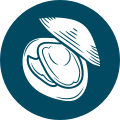
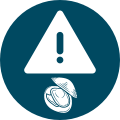
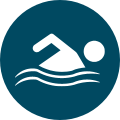
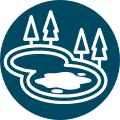
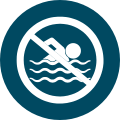


.png)
